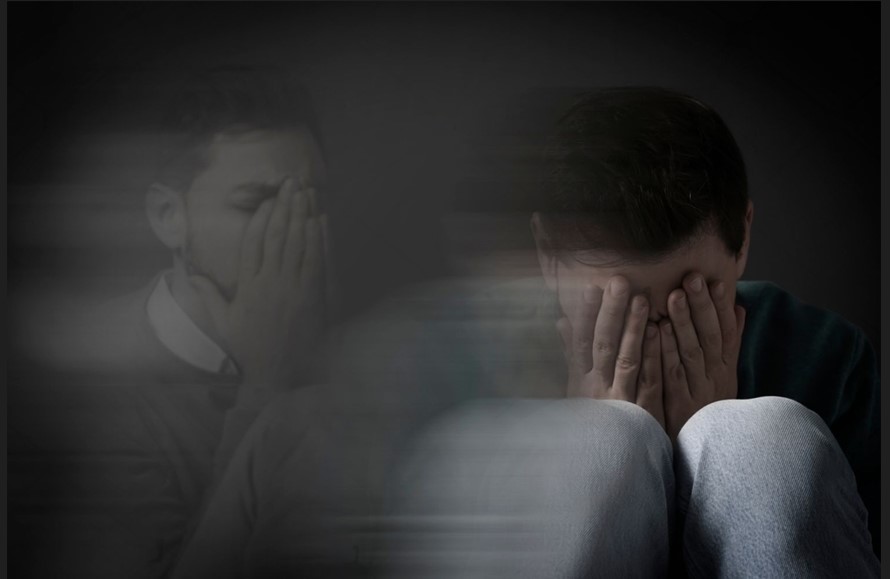Dissociative identity disorder (DID) is also known as multiple identity disorder, but typically healthcare professionals don’t use this term. In a few movies directors project, individuals with these disorders as “psycho,” or generally will show them as a dangerous personality, but they are just stigmatizing individuals with DID. If you want to know more about this disorder, read this blog.
What is dissociative identity disorder?
Dissociative identity disorder mainly affects individuals,
- Consciousness
- Memory
- Identity
- Behavior
- Perception
- Sense of self
Most individuals with dissociative identity disorder have traumatic past experiences, and all people with DID will have an abusive past. The primary symptom of dissociative identity disorder is dissociation, which is one of the defense mechanisms used to limit the awareness of such overwhelming trauma.
Usually in dissociation, an individual will experience disconnection in their thoughts, feelings, or sense of self and surroundings. However, this dissociative identity disorder is one of the most common conditions, further, studies too suggest that this condition affects 1% of the public and 5% to 20% of psychiatric patients, one can effectively treat this condition by reaching out to the best psychiatrist in Coimbatore.
What are the types of dissociative disorders?
Dissociative disorders come in three main types. The first one is DID, the second one is dissociative amnesia and the last one is depersonalization or derealization disorder.
In dissociative amnesia, an individual will find it difficult to remember their own information or experiences same as in DID, it has a potential connection with past trauma or stress. Amnesia can be:
Localized: Inability to recall events or certain periods of time.
Generalized: In this condition, an individual finds it difficult to remember their personal identity or life history.
Fugue: Difficulty in recalling how to reach your location, and loss of almost all the personal information.
While in depersonalization or derealization disorder:
Depersonalization: Detachment from your feelings, actions, thoughts, sense of self, or physical sensations such as out-of-body experience.
Derealization: You will feel like detached from the surroundings or feeling like being surrounded by the unreal world.
What are the dissociative identity disorder symptoms?
Simply, dissociative identity disorder is nothing but, we can notice an individual with two or more personality states, frequent amnesia, or significant gaps in long or short-term memory, like learned skills, or even personal information.
We call these multiple personality states “alters,” and they have different characteristics. This includes:
- Name
- Age
- Gender
- Skills
- Behavior
- Memories
There are both positive and negative symptoms of DID. The positive symptoms include:
- Intrusive thoughts, emotions, or impulses
- Multiple identities
- Depersonalization, or feeling of detachment from your mind and body
- Derealization or you will feel detached from the whole world
Further, the negative symptoms include:
- Can’t able to access information
- Loss of agency over mental functions
- Amnesia
Several individuals with dissociative identity disorder face:
- Difficulties in social, occupational, or personal functioning
- Suicidal thoughts
- Self-harm
- Extreme mood swings
- Depression
- Anxiety
- Insomnia
- Drugs or alcohol abuse
- Seizures
However, individuals with dissociative identity disorder often do suicide or self-harm. Even, studies have indicated that over 70% of patients with DID have attempted suicide. Also, there will be a great difference in how DID affects individuals, from minor disturbances in everyday functioning to complete disruption of both personal and professional life. Typically, dissociative identity disorder patients maintain in secret or hide their symptoms, which leads to delayed diagnosis and treatments, which also complicates the treatment.
What are the causes of DID?
The studies indicate that over 90% of dissociative identity disorder patients have experienced repetitive abuse or neglect in childhood. When individuals with dissociative identity disorder have not experienced sexual or physical abuse, they might have gone through traumatic early life experiences such as more medical procedures.
Simply, overlapping physical and mental conditions or the abuse you go through now may affect you later, and delay in treatment increases the chances of getting DID. Dissociation plays a crucial role in safeguarding you against the overwhelming of trauma. Let’s assume that you are dissociated during a traumatic event, it just feels as if someone else is having the experience. You will be disconnected, and it will be like you are watching from a distance.
In men, dissociative identity disorder develops due to fights, sexual abuse, or prison conditions. But comparatively, more than men, women are more vulnerable to this condition. Further, experts believe that shame and past traumas cause dissociative identity disorder in men.
What’s next?
In case, you or your loved ones have dissociative identity disorder or experienced any signs, treatment will greatly assist you in managing your condition. Usually, dissociative identity disorder won’t resolve without treatment. Whenever experiencing symptoms of DID, it’s better to consult your doctor or mental health professional. If you are concerned about your friend or loved one, just ask them to seek medical help.
In treating this condition, patience is the key, because you may tend to visit several clinics or long-term treatments to bring about real positive change. Simply, the effective treatment for dissociative identity disorder is psychotherapy. This therapy aims to integrate the alters, combining their memories and identities into one personality.
This therapy can cause some level of distress because it is painful, and you need to take this for the long term, it offers you relaxation and confront past trauma, but it is crucial for reducing symptoms. There are medications to treat these symptoms, so get the best psychiatric hospital in Coimbatore to get rid of this condition.
Final thoughts:
In conclusion, we can say that dissociative identity disorder will take some time to diagnose, and is also accompanied by other mental health conditions. The pervasive stigma around dissociative identity disorder can cause guilt, anxiety, shame, and depression. Also, individuals with DID have the risk of self-harm and suicide. The appropriate treatment at the correct time may help them and be life-saving. Just with the treatment, individuals with dissociative identity disorder can significantly enhance their quality of life.
Keep an eye for more news & updates on DiscoverTribune.Org!




